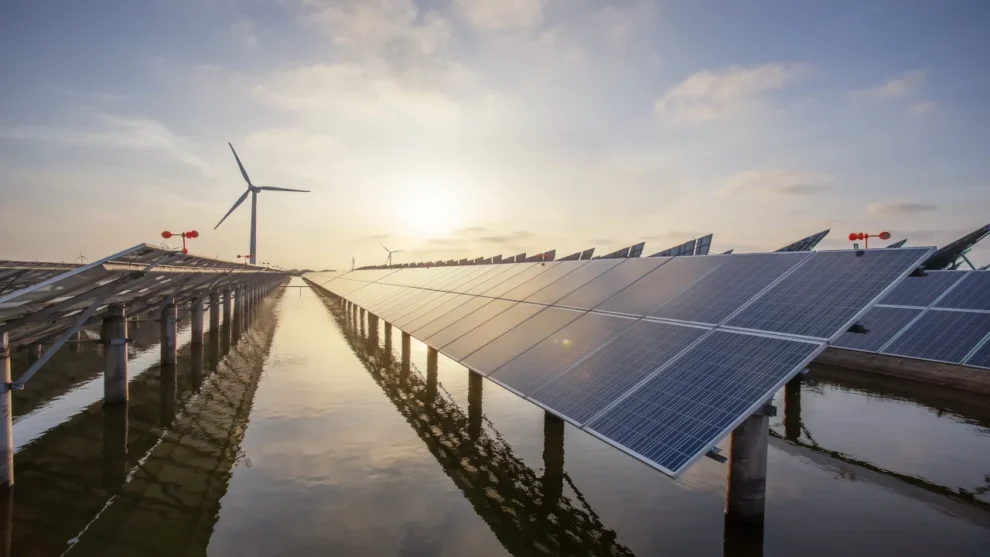Tunisia, which plans to integrate 35% renewable energy into the national electricity mix by 2030 and to embed the principles of energy efficiency, would benefit from preparing the necessary infrastructure for energy storage now.
Energy storage systems, using batteries and other technologies, could help overcome the main technical and economic challenges associated with the crucial integration of renewables to achieve the hoped-for energy transition, according to experts in the field speaking at the SITE 2023 Energy Transition Fair.
Integrating 35% renewable energy into the national grid will require storage services and systems to help manage the variability and uncertainty in the use of solar and wind energy fed into the grid, the experts said, calling on authorities to prepare now by identifying and deploying appropriate energy storage technologies.
Jomaa Souissi, Central Director of Strategy and Planning at the Tunisian Electricity and Gas Company (STEG), said energy storage systems are a means of matching supply and demand for solar electricity (storing excess energy to supply critical loads) and STEG, the grid operator, should first manage these systems to stabilise the supply and demand system, regulate frequencies and ensure the smooth integration of renewables.
“STEG could then issue authorisations to manage storage, but first it has to manage it itself, and there has to be a clearly defined regulatory framework for this,” he stressed.
According to Souissi, studies have shown that energy storage technology, which has already been adopted by several European and other countries, will be mastered in Tunisia by 2030-2032.
Tunisia is planning to embrace pumped storage, considered the most mature of the stationary energy storage technologies, but also the most expensive. A project has therefore been launched in Tabarka to create a pumped-storage energy transfer station (STEP) to generate hydroelectricity. This STEP will be operational on the Oued El Melah by 2029 and will produce 400 to 600 MW of hydroelectricity.
Once operational, the plant will save 250 ktoe of fuel per year and prevent 525,000 tonnes of CO2 emissions per year. According to STEG, the project will meet the future operational needs of the national electricity grid by stabilising supply and demand and facilitating the integration of renewable energy into the intermittent production of power plants.
At present, storage represents an additional cost for producers, according to the head of STEG, who argues that the state should prepare an energy storage infrastructure as soon as possible, so that in a few years’ time, when the price of batteries and other technologies falls, it will be possible to use them.
Other experts, however, argue that there should be no delay in preparing the infrastructure needed for storage, especially given the rapid fall in the cost of solar and wind energy technologies.
Paolo Cutrone, manager of the Renewable Energy Solutions for Africa (RES4Africa) Foundation, believes that “we need to find a storage solution that is adapted to the Tunisian context”. He added that “when considering the integration of renewables into the grid, we need to anticipate frequency regulation issues and ensure that the services provided by energy storage systems are properly valued or recognised within existing energy market regulations. We need to prepare an appropriate and clear regulatory framework to attract private investors and take into account the time factor”.
In his view, the most cost-effective storage system for Tunisia is currently batteries. “Battery storage is a key technology in Tunisia’s energy transition. Battery systems are easier to deploy in terms of the ability to create reserves, the ability to automatically start the system and other grid services, ranging from storing energy in electric vehicles to operating mini-grids and supporting self-consumption of energy”.
RES4Africa’s report on “Battery Energy Storage Systems in Tunisia” argues that energy storage is an essential tool to enable the effective integration of renewable energy and unlock the benefits of local generation and a clean, resilient energy supply.
“Choosing the right application, combining uses and optimising the control and sizing of a battery energy storage system are important steps to reduce uncertainty and increase the return on investment,” the report says.
Tunisia plans to install around 4 GW (4,440 MW) of renewable energy by 2030. So far, the country is far from reaching this target. Only about 400 MW of renewable energy capacity has been installed by 2020, including about 250 MW of wind, 90 MW of solar and 60 MW of hydro.
Source: Zawya











